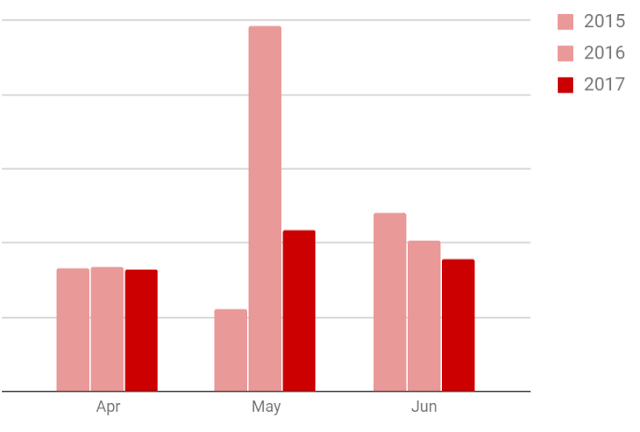This is the foundation and fundamental concept towards financial freedom.
Putting aside lottery and inheritance, there are only 2 ways you can make money:
1. Exchanging Time/Energy for Money, or Human Capital
2. Making Money From Money, or Financial Capital
Unfortunately, human capital is limited. We cannot work forever, and we only have 24 hours a day. Unless you are a super-high earner who can amass a fortune during your productive age on your job, you can never achieve financial freedom by the first method alone. This is because once you stop working, so does the cash inflow.
Most "commoners" are forever stuck with the first method. We were never taught other ways. If you do so, you will work until the day you die.
Take a moment to consider what would you rather have?
1. 20 Years of food in the warehouse
2. A farmland of livestock and crops that can produce enough food to feed you every year
1. $1 million dollars in the bank
2. Assets that can generate $50K per year, every year, forever.
---------------------------------------------------------------------------------
The Chinese have a saying - "Even if you have a mountain of gold, it'll eventually dry up when you stop working." (做吃山空)
Hence, the way to financial freedom is not to accumulate a mountain of gold, but to collect things that can generate gold for you perpetually.
The ordinary man work for 40 years, save up loads of money and then hope it'll last him through his retirement until the day he leave Earth. The financial literate person accumulates assets until his assets generate enough cashflow to cover his expenses.
What's the difference?
The second method has some clear advantages: You are never afraid that you would “live too long”. There is no risk of you having to return to work when you are 80 years old cause your retirement fund run out. There is no risk of spending too much when you first cashout your retirement lump sum.
In other words: Grow apple trees, not collect apples. Buy cows, not milk. Buy chickens, not eggs.
---------------------------------------------------------------------------------
So, what are assets? Assets are essentially anything that produces money/value. An asset generate cash inflow for you.
A simpler definition: If this thing gives you money, it’s an asset. If this thing takes money from you, it’s either an expense or liability.
A good dividend stock? It’s an asset.
A coupon-paying bond? It’s an asset
A milk-producing cow? It’s an asset.
Food that you need to eat? Expense.
Movie and entertainment? Expense.
Student loan? Liability.
Some often misinterpreted ones:
Your insurance/healthcare plan? It’s a liability.
Monthly car installment? It’s a liability.
A house you’re paying mortgage for? It’s a liability.
A house you rented out and collecting money every month? It’s an asset.
Certain things (like house) can be both an asset and liability at the same time. It's a complicated topic with many views but that's beyond the scope of this article. In essence, anything that does not give you money is an expense or liability (food, gadgets, clothings, etc...)
Remember this: The rich buy assets, not liabilities.
Everything is summarize by this guy.
The path to financial freedom is to have your money work for you.
The easiest to do this, for a typical Singaporean, is to use the first method (your human capital) to accumulate your first pot of gold. Save a lot, then invest it into assets.
Let your assets generate income, and use the income to buy more assets. (i.e 钱生钱)
In this diagram below, Poor Dad refer to the financially illiterate and majority of the population. Rich Dad is the path towards financial freedom.
Summary:
1) Work -> Income -> Buy Assets -> Repeat
2) Assets -> Generate Income -> Buy Assets -> Repeat
In your early years, most of your money will come from the first method. It can only be so for people who aren't born with a silver spoon, for commoners like us.
Thus, you need to make hay while the sun still shine. When you are young, your passive income will be pathetic compared to your active income. As you grow older, your human capital will eventually plateau and go into decline. You have less energy, are at greater risk of being fired, of becoming obsolete, of losing out to fresh graduates. That is the time when your financial capital should take over your human capital to generate money for you.
Eventually it will snowball to the point where income from the 2nd method covers your entire lifestyle expense.
And that, my friends, is financial independence.
A Side Note On Debt
Many young generation today live a "YOLO" lifestyle, thinking they should enjoy all they can, spending all their salary or worse, getting into debt.Debt and liabilities are the greatest obstacle to financial independence. Debt is borrowing from your future self. Interests on debt are "reverse passive income" that will compound against you. Never get into debt.
Finally I leave you with this video from OnePercentBetter. This article covers Chapter 2.




